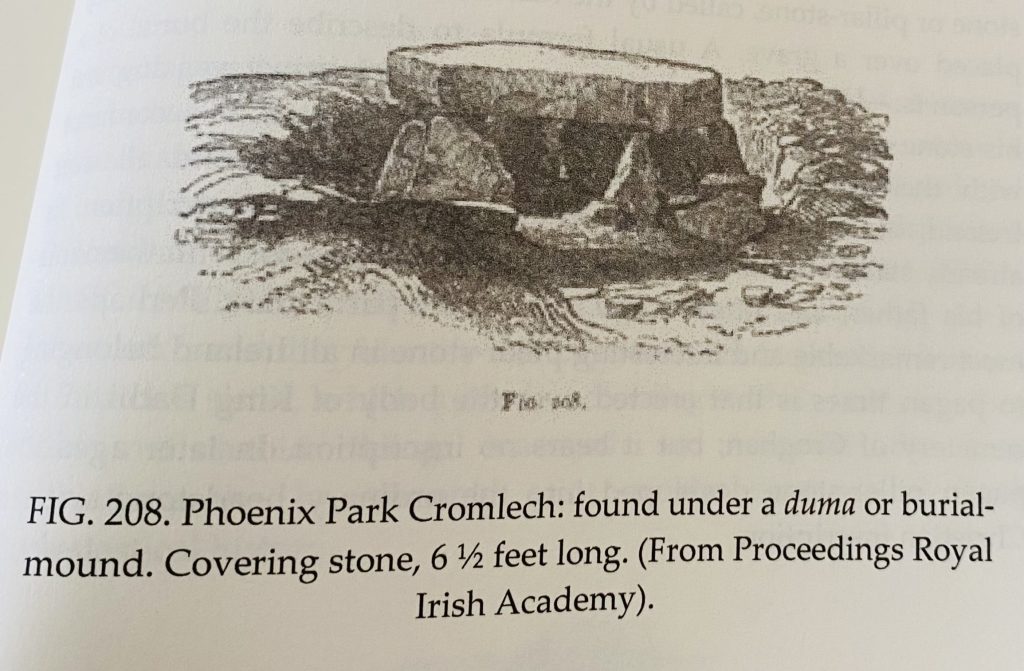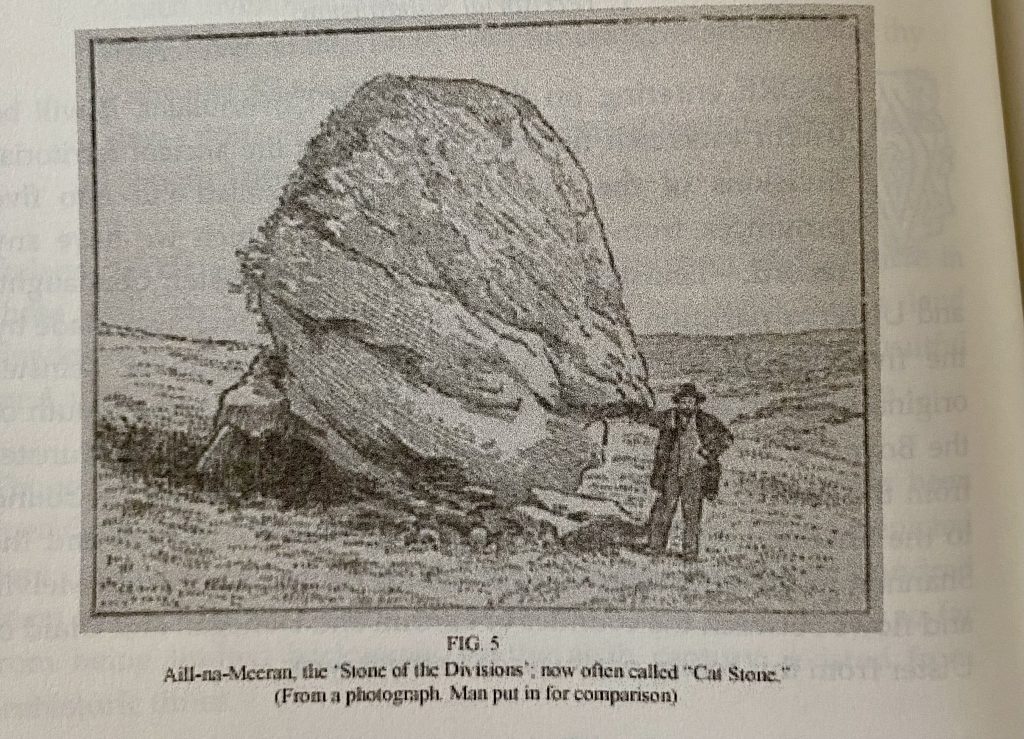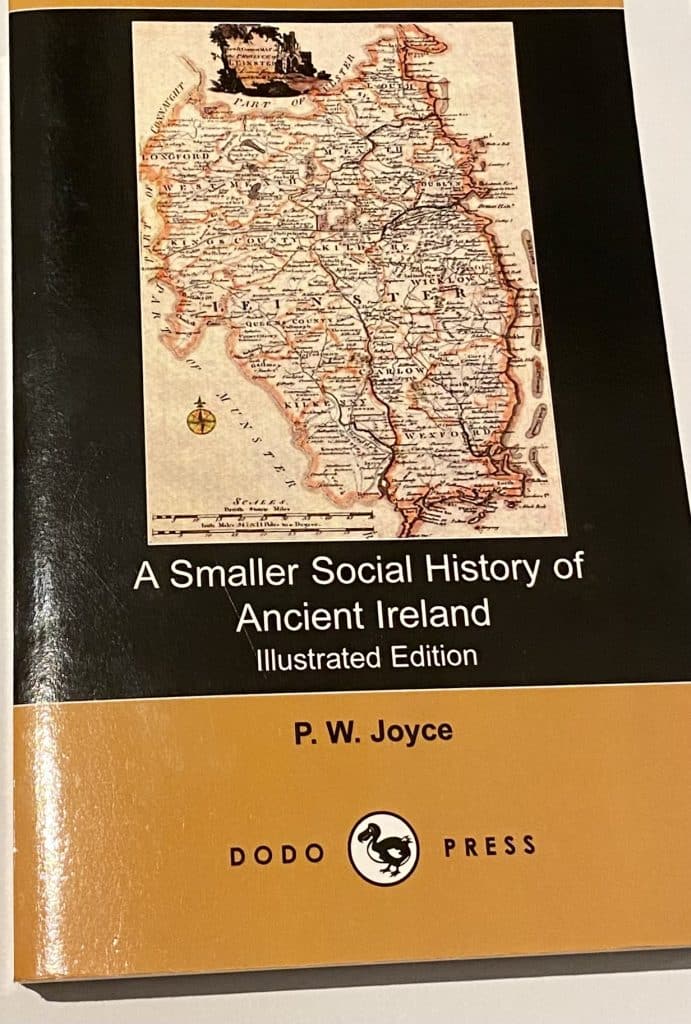I recently discovered that my 1 year-old daughter has already chosen her favourite book, one she undoubtedly picked for the colourful flaps and dynamic dinosaurs. When I ask what she wants to read, she has no hesitation, through pointing and screaming, which one it is. I only hope this is a sign that she is well on her way to fulfilling her father’s dream of becoming a palaeontologist. As we get older, it gets harder and harder to choose a ‘favourite book’. But for me, there’s no doubt that Joyce’s work is, and probably will always be, my favourite source on Irish history. Its quality, richness, and breadth is simply unparalleled. There’s no attempt at narrative, no embellishment. It provides a raw, descriptive and factual picture of, as it’s name suggests, a smaller social history of ancient Ireland.
Book overview
When I first began my journey into ancient Ireland, I quickly became lost in the debates over textual criticism, hermeneutics, and many other things I didn’t understand. Yet all I wanted was a simple overview of what life was like 2000 years ago and I was quickly beginning to despair that this didn’t exist. Either books were poorly researched, filled with speculation rather than evidence, or were far too technical for a layperson to understand. That was until I stumbled across Joyce’s work.

Analysing any subject from a single point of view will always be incomplete, especially ancient Ireland. Irish mythology gives us one set of perspective (though heavily shaped by those who first transcribed them centuries later). Then there’s the monuments and archaeological record which provides another. And then there’s the cultural perspective of the Irish themselves whereby the language, customs and beliefs, all together give important context for the histories which shaped them. Joyce masterfully weaves these all together to into this book. Myths are contextualised, customs explained, histories evidenced. You only have to turn to the book’s structure to see this.
Book Structure
Originally published in 1906, this work consists of 3 parts and 27 chapters covering all aspects of ancient Ireland. Beginning with governance, social structures and law, it then progresses to the wider social areas of professions, religion, education, art and the family. The final chapters deal with specific day-to-day aspects of life like food, dress, agriculture, and travel. The list is by far the most comprehensive I’ve found in any book of its type, providing a truly complex and nuanced impression of what life would have been like.
The structure is as follows:
Part 1: Governance, military system and law – Government by Kings; Warfare; The Brehon Laws
Part 2: Religion, learning and art – Paganism; Christianity; Learning and Education; Irish Language and Literature; Ecclesiastical and Religious Writings; Annals, Histories and Genealogies; Historical and Romance Tales; Art; Music; Medicine and Medical Doctors
Part 3: Social and domestic life – The Family; The House; Food, Fuel and Light; Dress and Personal Adornment; Agriculture and Pasturage; Workers in Wood, Metal and Stone; Corn Mills and Querns; Trades and Industries Connected with Clothing; Measures, Weights and Mediums of Exchange; Locomotion and Commerce; Public Assemblies, Sports and Pastimes; Social Customs; Death and Burial
From this long list, it’s evident just how wide-ranging this book is. This means it can be used both as a reference text or as historical reading. The narrative is typically descriptive providing a summary of the given subject and evidence for his points. But he also provides 212 different illustrations to help the reader visualise and bring his subjects to life.

Complete in its concision
You are probably wondering, as I did too, at the choice of “smaller” in the title. This is actually the summary of a much larger collection. But rather than make any commitment to his complete works, I decided to wait until I read through this 425 page ‘smaller’ version. However, that was perhaps my mistake, for it was like going to a restaurant and ordering the finest starter course. I now have the taste of something so delicious, that I’ve no interest in exploring this greater work, so complete and comprehensive is his summary. I have no doubt that I’d enjoy, and almost certainly will one day explore, this collection. But for now I am thoroughly satisfied.
Verdict
This is not a book to read end-to-end. I did – because I have an unusual love of historical detail. But for the vast majority of people, this book will be far too dry and description. In fact, that’s exactly what it is – wonderfully descriptive in great detail. For the casual reader, this is definitely not a book for you. There’s no narrative, plot, or application to modern culture. It is factual and emphatic, not a thriller. The version I have (Dodo Press) is also quite difficult to navigate, with no page numbers, errors in transcription, and some poorly structured spacing due to print quality. Despite all of this, it remains my go-to text for any question on ancient Ireland.
Author
It’s difficult to overstate the quality of Patrick Weston Joyce‘s writing and experience. A central figure in preserving the Irish language, heritage and history, his writings date from 1869-1911. You may wonder whether such dated works are still relevant today. But it’s testament to his scholarship that it remains a foundational secondary source for contemporary historians. I can’t count the times I’ve seen his work referenced by modern scholars, particularly as he had access to source material which no longer exists.
Favourite quote
The ancient Irish were a highly intellectual and interesting people; and the world owes them something, as I hope to be able to show.

Favourite fact
Warriors were not simple-minded, but were expected to have “mastered a certain specified and large amount of poetry and tales” before they’d be allowed to join the ranks of their warrior class. I wonder how are own armies would fare under such criteria today.
Book specification
425 pages, 27 chapters, published in 1906.
Available for free digitally here: Library Ireland
Usually available to buy here on Amazon but unavailable at time of writing
For more of my posts please see here or to follow me on Twitter see here

Leave a Reply
You must be logged in to post a comment.